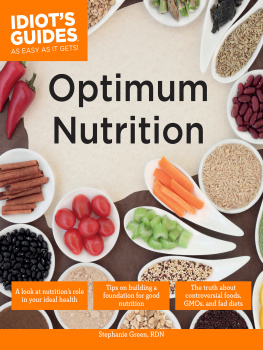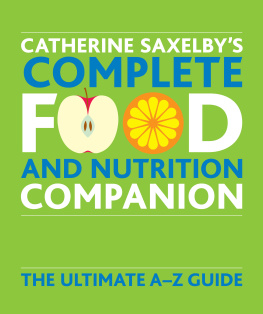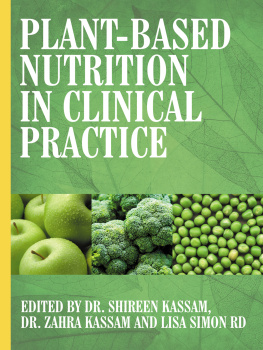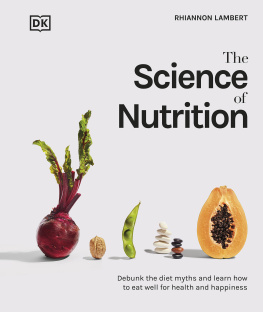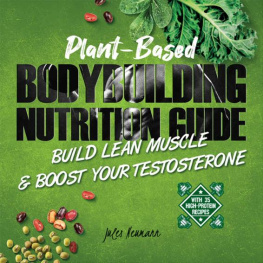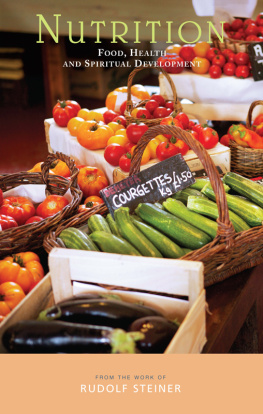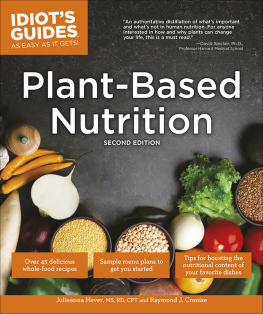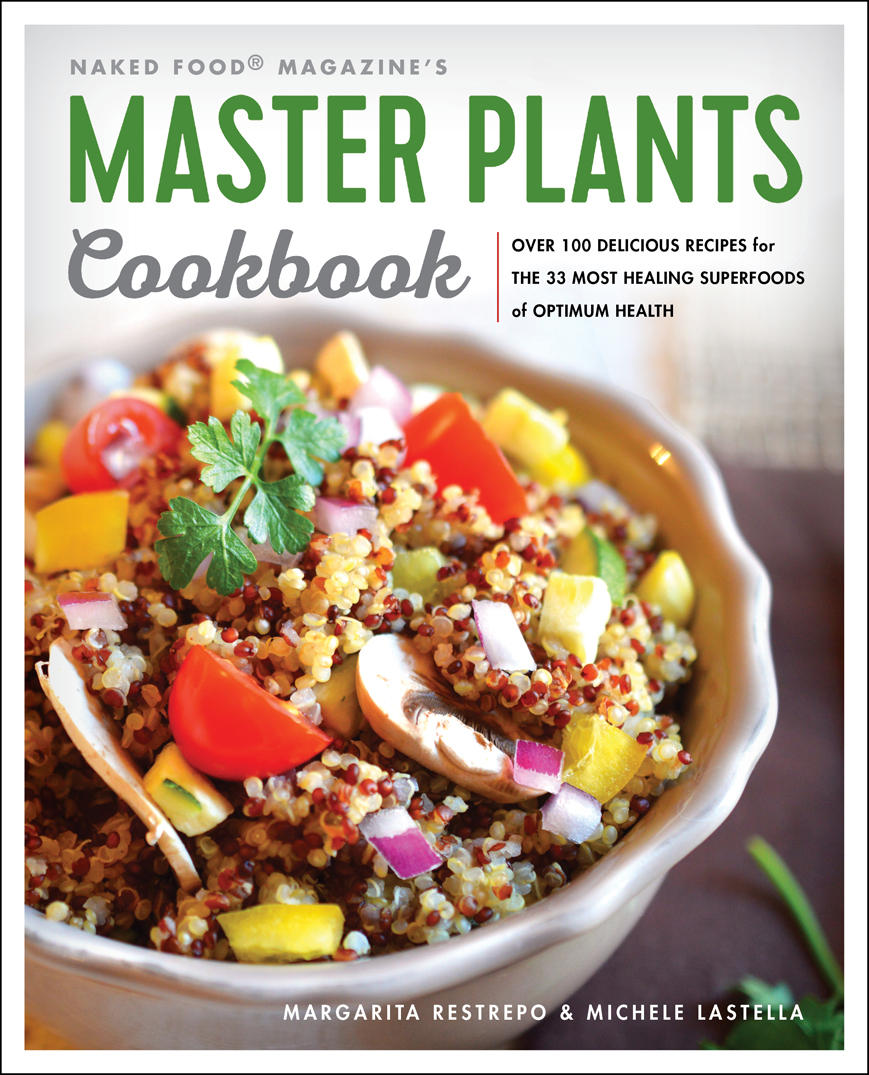If youre looking for recipes that are easy yet exciting, healthy, and great tasting, this is the cookbook that youve been waiting for. Just as ancient civilizations thrived on a plant-based diet, so will you! As a physician and nutrition researcher, I have found low-fat vegan foods to pack enormous power. This is a great book for anyone, whether youre looking for help to get started or looking for new recipes and information. Read Master Plants and master your health!
NEAL BARNARD, M.D., founding president of the Physicians Committee for Responsible Medicine, professor of medicine at the George Washington University School of Medicine and Health Sciences, author of 17 books and more than 70 published papers on nutrition and its impact on human health
Margarita Restrepo and Michele Lastella have written a masterpiece of nutrition. You will become acquainted with the fascinating origin of the vegetables and fruit of the past and will be excited by the incredibly original and delicious recipes. The photography is so beautiful you will even want to take a bite of the soursop, peel and all. This is an extraordinary book that makes it clear there is no other way to eat than plant-based.
CALDWELL B. ESSELSTYN, JR., M.D., author of Prevent and Reverse Heart Disease, and Ann Crile Esselstyn, author with Jane Esselstyn of The Prevent and Reverse Heart Disease Cookbook
What a beautiful book! Filled with valuable insights and helpful tips, and combining cutting-edge nutritional research with the nourishing traditions of ancient civilizations, Master Plants is the book that the food movement has been waiting for. It has my highest recommendation.
JOHN ROBBINS, author of The Food Revolution and Diet for a New America
Beauty is attractive. The brilliant colors used in the Master Plants Cookbook make us want to reach out to touch, taste, and smell foods that help us reach our highest potentials in life.
JOHN MCDOUGALL, M.D., founder of the McDougall Program, author, lecturer, and researcher
The Master Plants Cookbook is first a feast for the eyes, then for the mind, and finally for the palate. Its gorgeous in every respect and organized like no other cookbook Ive ever seen. Both user-friendly and gourmet, its guaranteed to turn any veg-curious cook into a passionate and accomplished plant-based chef.
HOWARD JACOBSON, PH.D., co-author of Whole: Rethinking The Science of Nutrition and founder at PlantYourself.com

2016 by Margarita Restrepo & Michele Lastella
Published by Running Press Book Publishers,
An Imprint of Perseus Books, a Division of PBG Publishing, LLC,
A Subsidiary of Hachette Book Group, Inc.
All rights reserved under the Pan-American and International Copyright Conventions
Printed in China
This book may not be reproduced in whole or in part, in any form or by any means, electronic or mechanical, including photocopying, recording, or by any information storage and retrieval system now known or hereafter invented, without written permission from the publisher.
Books published by Running Press are available at special discounts for bulk purchases in the United States by corporations, institutions, and other organizations. For more information, please contact the Special Markets Department at the Perseus Books Group, 2300 Chestnut Street, Suite 200, Philadelphia, PA 19103, or call (800) 810-4145, ext. 5000, or e-mail .
ISBN 978-0-7624-6024-3
Library of Congress Control Number: 2016938267
E-book ISBN 978-0-7624-6025-0
9 8 7 6 5 4 3 2 1
Digit on the right indicates the number of this printing
Designed by Susan Van Horn
Edited by Jennifer Kasius
All photos taken by Margarita Restrepo and Michele LaStella, except where noted in Photo Credits, page 289.
Illustrations on pages 5, 10, 54, 122, 256, 277, and 289 Chantall/CreativeMarket.com
Typography: Futura, Archer, Cervo, and Nexa Script, Helvetica, Arial Unicode
Disclaimer: This book is intended only as an informative guide for those wishing to know more about healthy diets. In no way is this book intended to replace, countermand, or conflict with the advice given to the reader by her/his physician. Information in this book is offered with no guarantees on the part of the author or the publisher.
Running Press Book Publishers
2300 Chestnut Street
Philadelphia, PA 19103-4371
Visit us on the web!
www.runningpress.com
We dedicate this book to every human being who has passed away
from a preventable chronic disease, and to those who have
rediscovered the power of plants to reverse them.
To the organic farmer. To the fervent locavore. To the sustainable eater.
Table of Contents
Guide
Contents







IF YOU WANT TO KNOW WHAT YOU SHOULD BE EATING FOR OPTIMAL HEALTH AND WELLNESS, LOOK NO FURTHER THAN OUR CLOSEST RELATIVES, THE CHIMPANZEES.

T hese creatures are probably the best living example of what our diet looked like before modern agriculture... and what it should look more like today. Chimpanzees eat plants and fruit all day, but eat meat only about nine days out of the year. For a long time, we humans followed suit. For one hundred thousand years, in fact, humans evolved with a diet that was primarily the same as that of our chimpanzee brethren: low-fat and plant-based, with infrequent forays into meat. After all, our bodies were not designed to capture prey, and our tools for hunting and fishing were primitive.
These eating habits werent just a primitive phenomenon. Even as recently as two hundred years ago, Americans seldom ate meat. In the early 1800s, meat was simply too expensive and too impractical for the average household. Only the rich ate meat on a regular basis, which is why gout, caused by the breakdown of protein, was called the rich mans disease. Most Americans would only eat meat on special occasions such as Easter and weddings.
Historically, plants werent just for eating. They were also for healing. The first healing doctors relied on herbs and substances derived from natural sources as an important cure for diseases. Ancient doctors found ways to cure ailments by testing the plants available to them, and through trial and error treatments. In most cultures, the women who cared for the health of their families were in charge of gathering and doling out plants. This wealth of knowledge was then passed down through the generations orally.


